President Donald Trump’s first weeks back in the White House have been nothing short of dizzying.
President Trump’s first 100 days
He kicked off his second presidency with a fury of policy actions — imposing (then postponing) tariffs on Canada and Mexico; barring transgender people from serving and enlisting in the military; and eliminating many US foreign aid programs. He has revealed plans to purge the FBI of his perceived enemies and provided sweeping pardons to his insurrectionist supporters. And he’s vowed to launch the “largest deportation program in American history.”
Trump appears intent on remaking the executive branch as he sees fit — empowering ally Elon Musk to push aside civil servants, wind down entire agencies, and generally strike terror into the federal workforce.
The news is changing rapidly. Follow here for the latest updates, analysis, and explainers about Trump’s first 100 days in office.
Conservatives’ decades-long quest to destroy the Department of Education
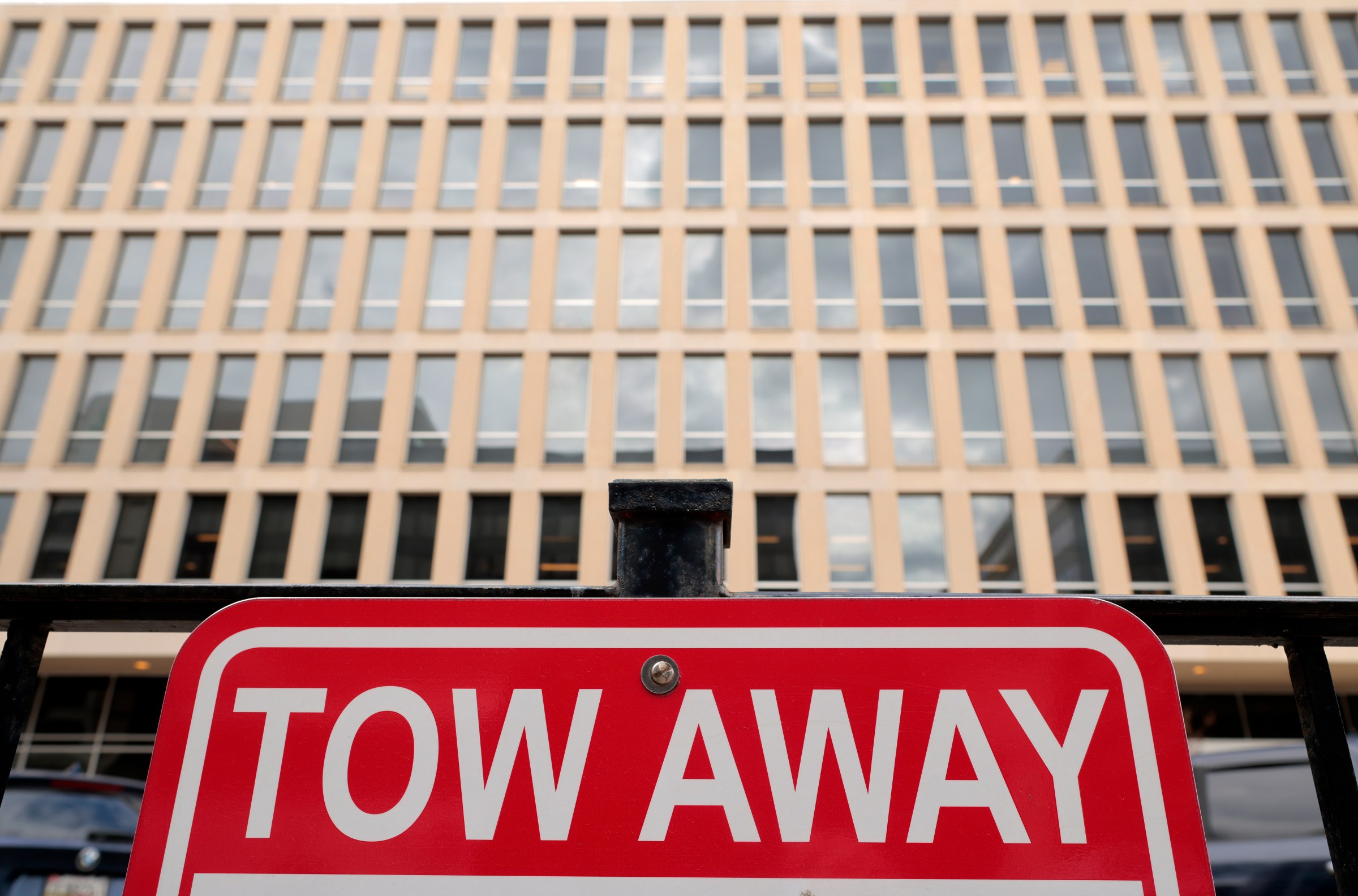

A sign warns drivers outside the Department of Education’s headquarters on March 6, 2025, in Washington, DC. Chip Somodevilla/Getty ImagesConservative activists have been dreaming of dismantling the Department of Education for decades.
They’re closer than ever to achieving their goal.
Read Article >Trump’s gutting of the Education Department, explained
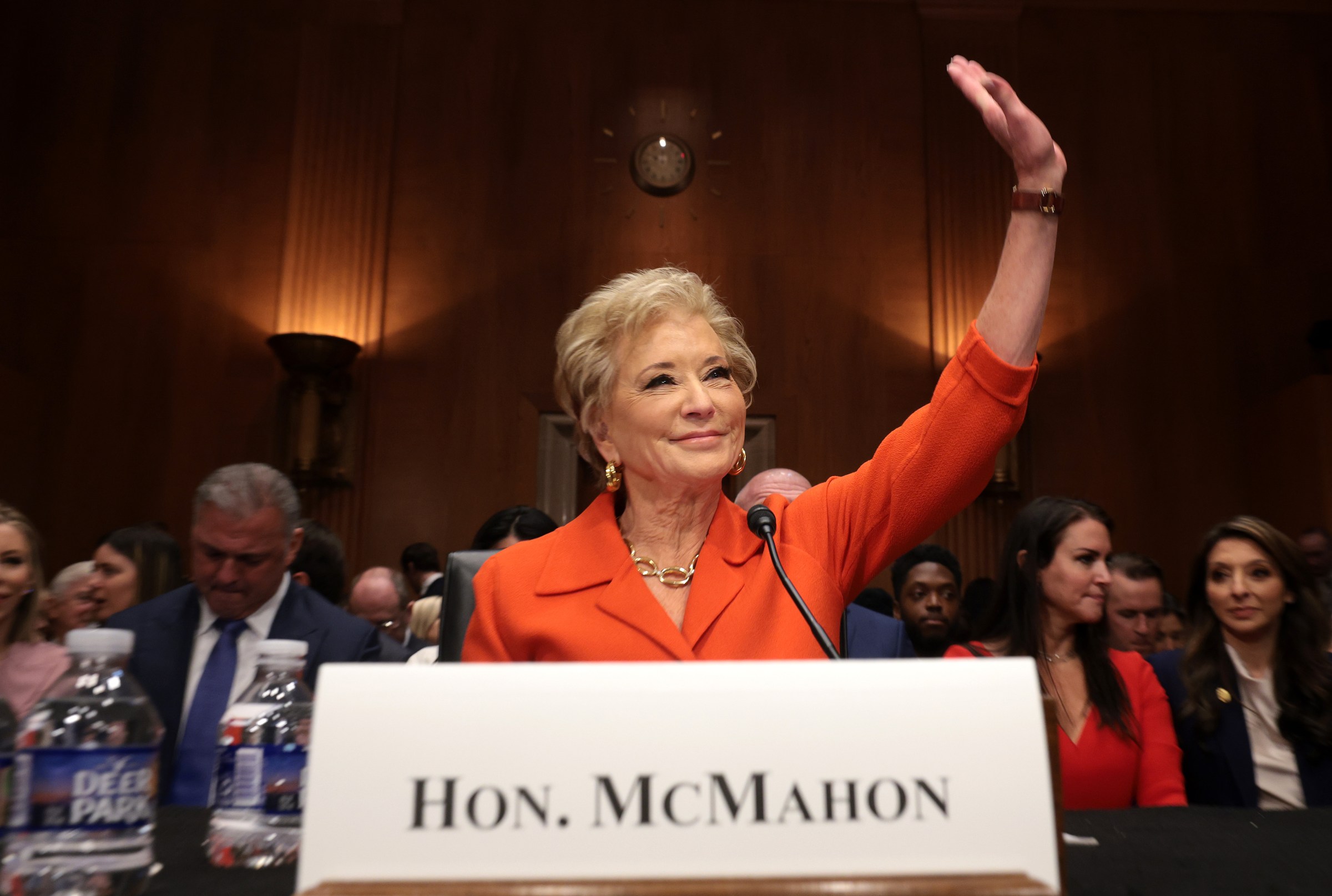

Linda McMahon arrives for her Senate Health, Education, Labor, and Pensions Committee confirmation hearing on February 13, 2025. Win McNamee/Getty ImagesOne of President Donald Trump’s biggest targets in his second term has been the Education Department, a federal agency established in 1979 that oversees the enforcement of federal law in schools. He’s called the department “a big con job,” and expressed his hope that Linda McMahon, confirmed on March 3 to head the agency, will “put herself out of a job.” On March 20, he finally signed a long-expected executive order directing McMahon to dismantle the department.
Trump cannot legally close the Education Department without cooperation from Congress. (During her confirmation hearing, McMahon agreed that congressional action would be necessary, and said some programs would continue.) But the administration has already started making massive changes. In early March, the department announced the layoffs of more than 1,300 workers, bringing the agency to about half the size it was when Trump took office, according to the New York Times. The department’s Office of Civil Rights, which enforces federal disability law and anti-discrimination protections in schools, faced especially stark cuts. McMahon said in a Fox News interview on March 11 that the layoffs were part of Trump’s plan for the department: “His directive to me, clearly, is to shut down the Department of Education.”
Read Article >The Trump right’s pro-Israel antisemitism


President Donald Trump walks alongside Israel’s Prime Minister Benjamin Netanyahu as he arrives to deliver a speech at the Israel Museum in Jerusalem on May 23, 2017. Mandel Ngan/AFP via Getty ImagesOver and over again, the Trump administration has claimed to be fighting antisemitism while wielding power against its domestic enemies. Yet, at the same time, there’s been a troubling surge in antisemitism among MAGA influencers and even some Trump administration staff.
Concern for the safety of the Jewish community has been the stated motivation for two of Donald Trump’s most recent aggressive moves — cutting $400 million in federal funding to Columbia University and attempting to deport one of its graduate students, green-card holder Mahmoud Khalil, in retaliation for his pro-Palestinian activism.
Read Article >The Elon Musk company you should be worried about right now


President Donald Trump and Elon Musk show off a Tesla Model S on the South Lawn of the White House on March 11, 2025. Andrew Harnik/Getty ImagesThe next phase of Elon Musk’s plan to entangle his companies with the workings of the federal government is well underway. That entails not only President Donald Trump’s photo op with a Tesla in front of the White House but also, surprisingly, the future of your internet connection.
More specifically, Musk is making moves that could change the way millions of Americans access the internet by boosting Starlink, the satellite-based internet company operated by his company, SpaceX, of which he is the founder, CEO, and major shareholder.
Read Article >The ugly history behind the obscure law Trump is using for mass deportations


More than 250 suspected gang members arrived in El Salvador by plane, including 238 members of Venezuela’s Tren de Aragua gang and 23 members of the MS-13 gang, who were deported to El Salvador by the US in San Salvador, El Salvador on March 16, 2025. El Salvador Presidency/Handout/Anadolu via Getty ImagesPresident Donald Trump has invoked an 18th-century wartime law to carry out a large-scale deportation operation.
As he promised on the campaign trail, Trump used the Alien Enemies Act to send hundreds of people with alleged Venezuelan gang ties to El Salvador, ignoring a court order blocking their deportations. The law, passed in 1798 as part of the Alien and Sedition Acts, allows the president to detain and deport noncitizens from countries at war with or invading the US.
Read Article >A judge told Trump to halt deportation flights. They went ahead anyway.


Stephen Miller, deputy White House chief of staff for policy, speaks with President Donald Trump looking on. Andrew Harnik/Getty ImagesA legal showdown this past weekend shows that the Trump administration is continuing to test the limits of how far they can get away with ignoring or defying court orders.
On Saturday, Trump officials attempted to rapidly deport a bunch of people they said were Venezuelan gang members to El Salvador — based on a new and initially secret legal rationale — before progressive activists could sue and judges could stop them.
Read Article >What can be done if Trump is openly defying the courts?
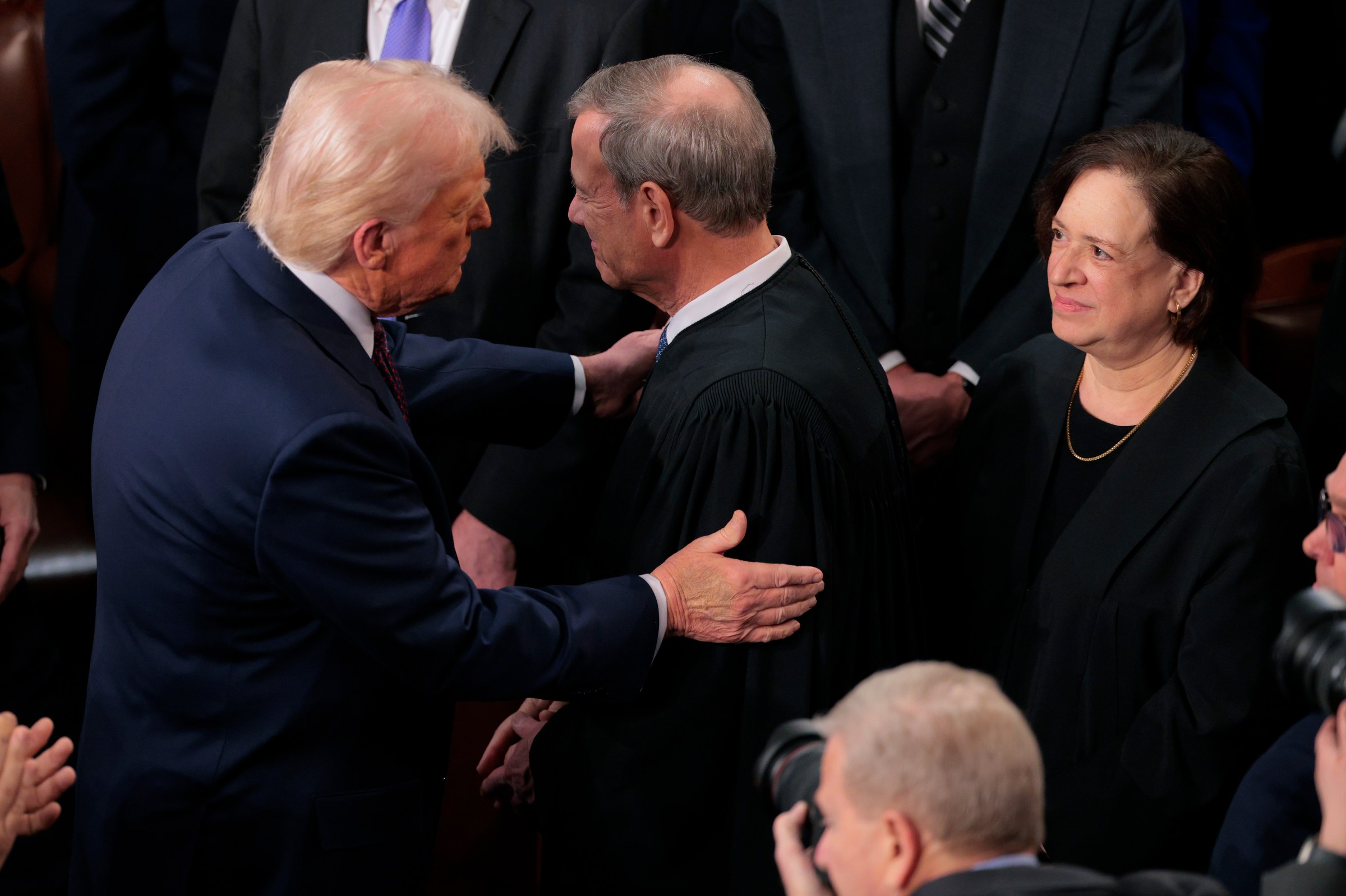

President Donald Trump greets Chief Justice John Roberts as before Trump’s address to a joint session of Congress at the US Capitol on March 4, 2025. Chip Somodevilla/Getty ImagesThe question of what happens if the Trump administration openly defies a federal court order has hung over the United States since President Donald Trump’s second term began. If that happens, it will trigger a constitutional crisis. Now, that long-awaited crisis may be upon us.
On Saturday, Trump issued a proclamation claiming the authority to deport Venezuelan nationals that, he claims, are members of a criminal gang known as Tren de Aragua. Trump alleges that these foreign nationals may be swiftly removed under the Alien Enemies Act of 1798, a law that has only been invoked three times in American history — the last time in World War II.
Read Article >Tren de Aragua, the gang Trump is targeting, explained
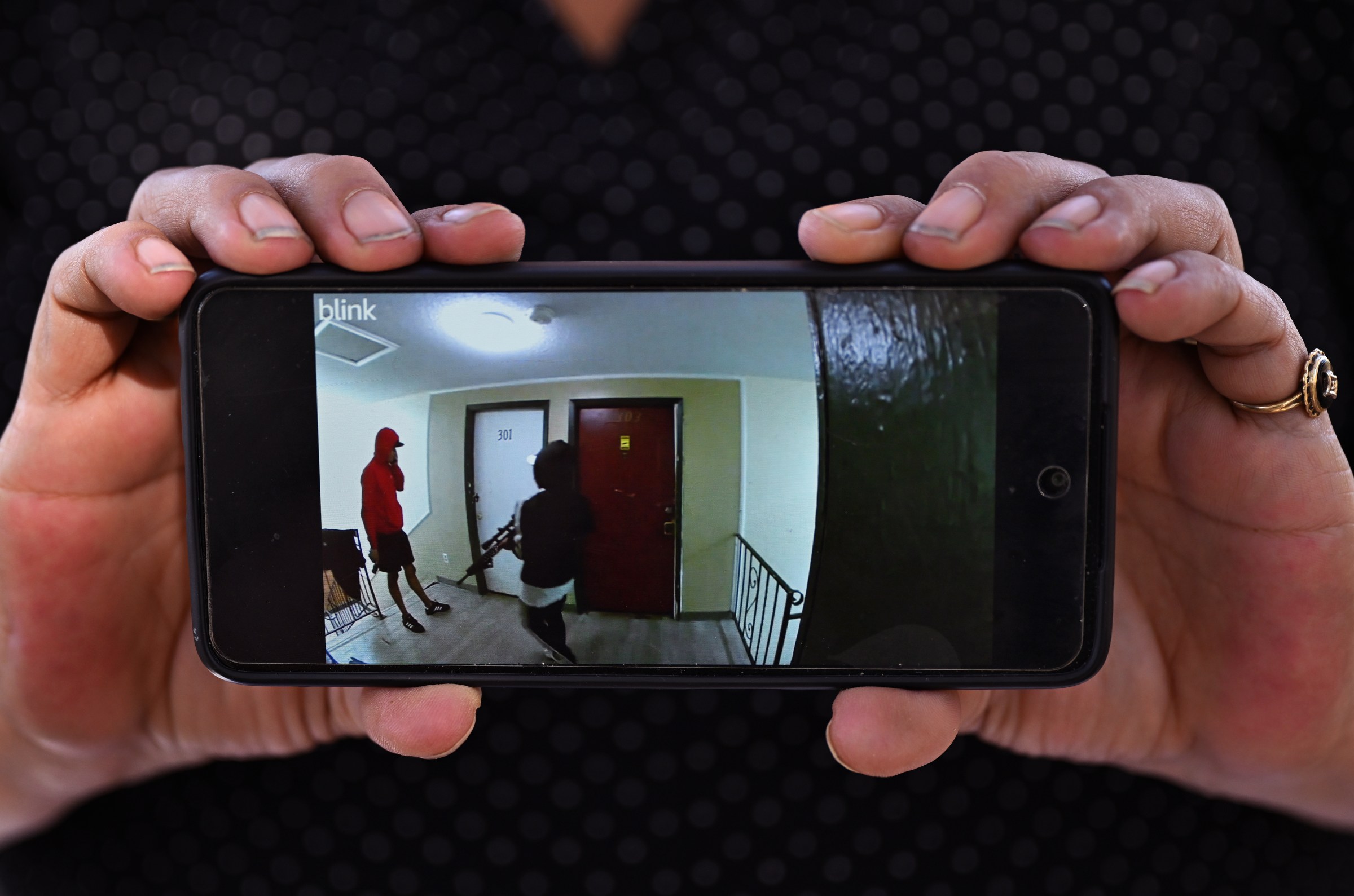

A viral surveillance video posted of alleged armed members of the Tren de Aragua gang in Aurora, Colorado, in 2024. RJ Sangosti/MediaNewsGroup/The Denver Post via Getty ImagesOver the weekend, the stakes of the Trump administration’s deportation efforts reached a new level after the White House invoked an 18th-century legal authority to expand its powers. A federal judge attempted to block the removal of hundreds of alleged gang members, but the administration carried on with the deportations, arguing the order came too late.
More than 200 Venezuelan immigrants, which the White House accused of being members of a Venezuelan gang, were flown — along with some suspected members of a Salvadoran gang — from the US to a supermax prison in El Salvador on Saturday. The White House claims the court order didn’t apply to this flight because it was already over international waters on its way to El Salvador by the time it was put into effect. The Trump administration says it welcomes a coming legal fight over its expanded immigration authority.
Read Article >Has Trump already killed NATO?
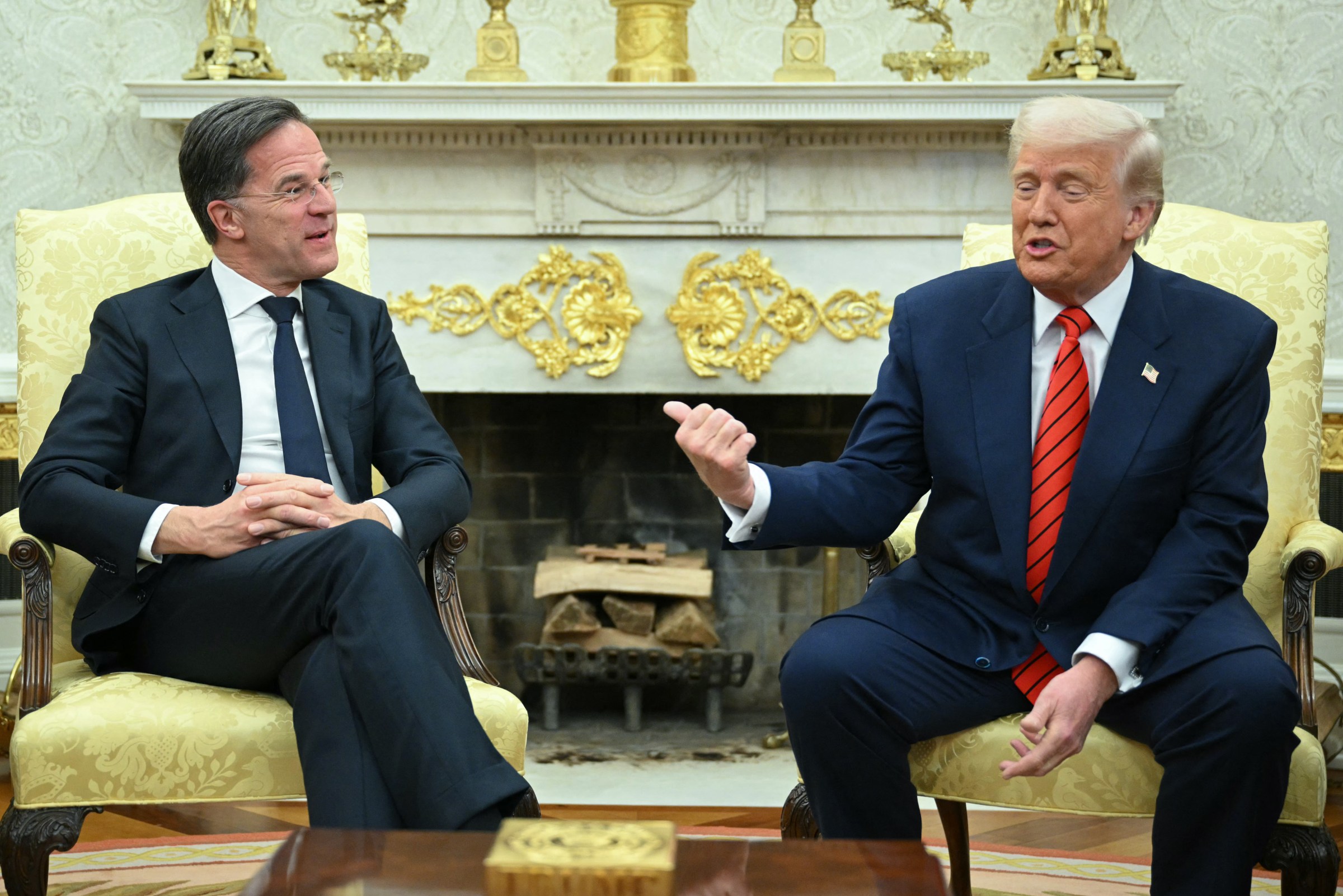

US President Donald Trump meets with NATO Secretary General Mark Rutte in the Oval Office of the White House in Washington, DC, on March 13, 2025. Mandel Ngan/AFPThroughout his first term as president, Donald Trump repeatedly threatened to leave NATO, an alliance that in his view allows other countries who don’t spend enough on their own defense to get a free ride on US security guarantees. His former national security adviser John Bolton has written that he believes Trump would have followed through on the threat if he’d been reelected in 2020.
This term, though, despite deepening tensions with Europe, Trump hasn’t said much about leaving the alliance. His secretary of defense, Pete Hegseth, has avowed, “The United States remains committed to the NATO alliance and to the defense partnership with Europe. Full stop.”
Read Article >Trump’s attacks on higher ed could provide a chance to reimagine the university

 Nathan Dumlao/Unsplash
Nathan Dumlao/UnsplashOn Monday, the National Institutes of Health (NIH) posted on X that it would terminate over 400 grants, adding up to some $250 million in funding, to Columbia University over its response to pro-Palestinian protests. The following day, the Trump administration pulled $800 million in USAID-related grants from Johns Hopkins University, academia’s biggest research and development spender.
These cuts come on top of last month’s announcement of major rollbacks to what are known as indirect costs — money the NIH gives research institutions on top of project-specific grants to cover necessary expenses like building maintenance, utilities, and administrative staff salaries. Many universities — both large and small, public and private — rely on the NIH to sustain a lot of their day-to-day operations.
Read Article >The devastating impact of Trump’s slashing foreign aid, in 3 charts


A child gets a malaria vaccination at a hospital in Yala, Kenya, on October 7, 2021. Brian Ongoro/AFP via Getty ImagesIn about three short months, the Trump administration took a wrecking ball to foreign aid, threatening millions of lives and livelihoods around the world. After initially pausing all US foreign aid spending for 90 days, President Donald Trump handed over the reins to Elon Musk’s Department of Government Efficiency (DOGE).
The damage as DOGE went about clear-cutting the US Agency for International Development (USAID) was swift and extensive. Health clinics from Afghanistan to Burundi shuttered. Oxygen tanks, HIV and malaria medications, and other medical supplies amounting to at least $240 million remain stuck at ports or storage facilities around the world. Ebola prevention and response funding, which Musk claimed at the end of February was restored with “no interruption” during the 90-day freeze, is reportedly still not operational, according to several public health experts. Whether it’s aid for malnutrition, clean water, or outbreak response, even a handful of days can undo years of progress in the making.
Read Article >3 ways you can help the people hurt by Trump’s foreign aid cuts


Scarlett, a visually impaired grade 3 student, uses a cane to walk to class at the Inclusive Education Community Resource Center in the Philippines, part of the GABAY project impacted by the Trump administration’s freeze on foreign aid. Ezra Acayan/Getty ImagesPresident Donald Trump has put millions of lives at risk by shutting down most of America’s humanitarian and development work abroad. After freezing almost all spending on foreign aid, the administration this week finished its purge at the US Agency for International Development (USAID), announcing that 83 percent of its programs are being axed.
But you can help keep some of these lifesaving programs going. Experts who see the immense value of these programs — which prevent and treat diseases, supply food and clean water to people living in extreme poverty, and help refugees fleeing war — have spun up new emergency funds to enable the programs to continue their operations. And they’re seeking donations.
Read Article >Canada is so furious at the US right now
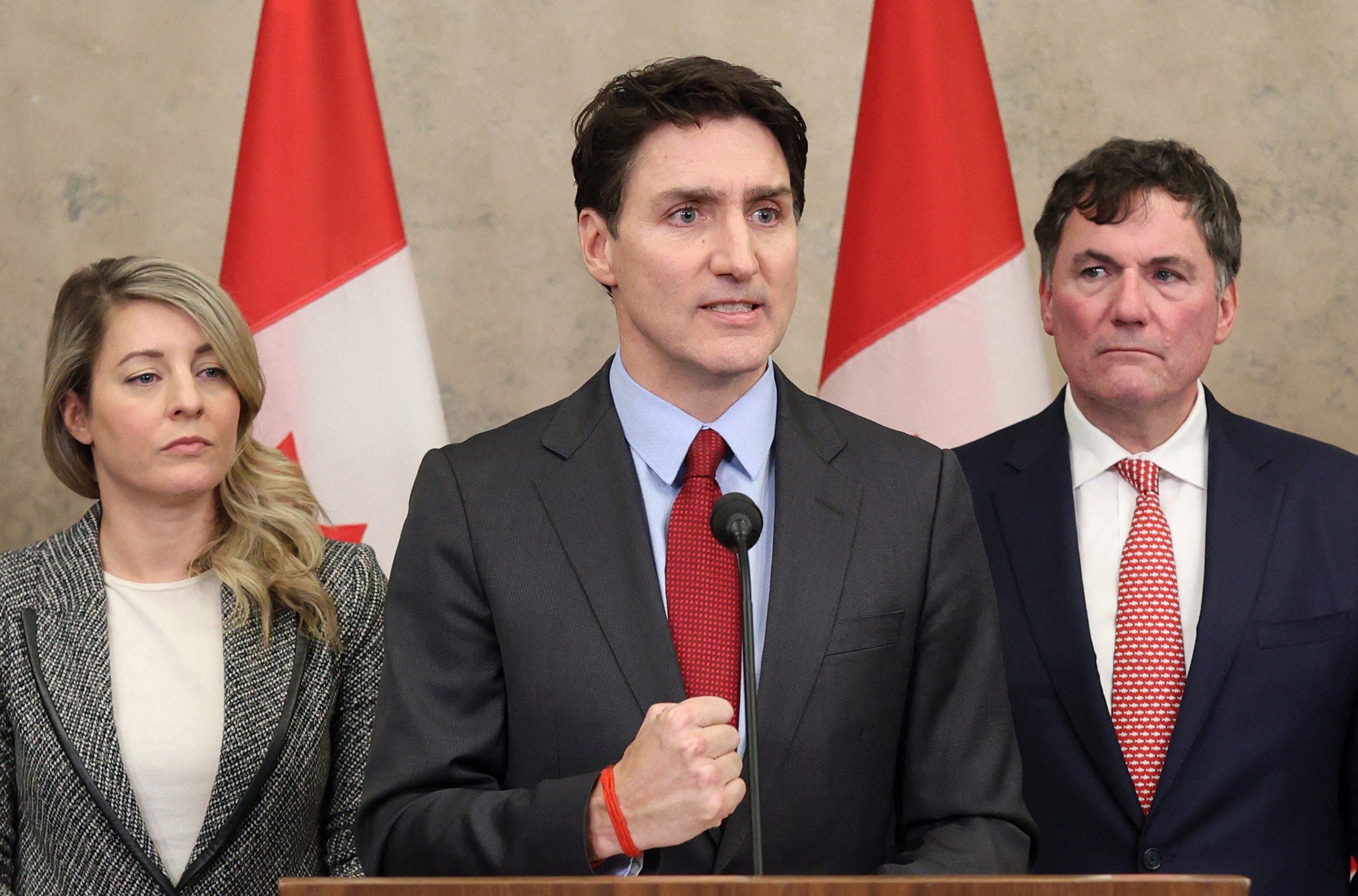

Canadanian Prime Minister Justin Trudeau speaks, flanked by Minister of Foreign Affairs Melanie Joly (left) and Minister of Finance and Intergovernmental Affairs Dominic LeBlanc, during a news conference February 1, 2025, on Parliament Hill in Ottawa, Canada. Dave Chan/AFP/Getty ImagesThe US and Canada are meant to be the best of friends, but they’re in the midst of a pretty ugly fight.
It began with President Donald Trump’s ascent to the White House, when he began referring to his outgoing Canadian counterpart as “Governor Justin Trudeau of the Great State of Canada.”
Read Article >Should Democrats let the government shut down?
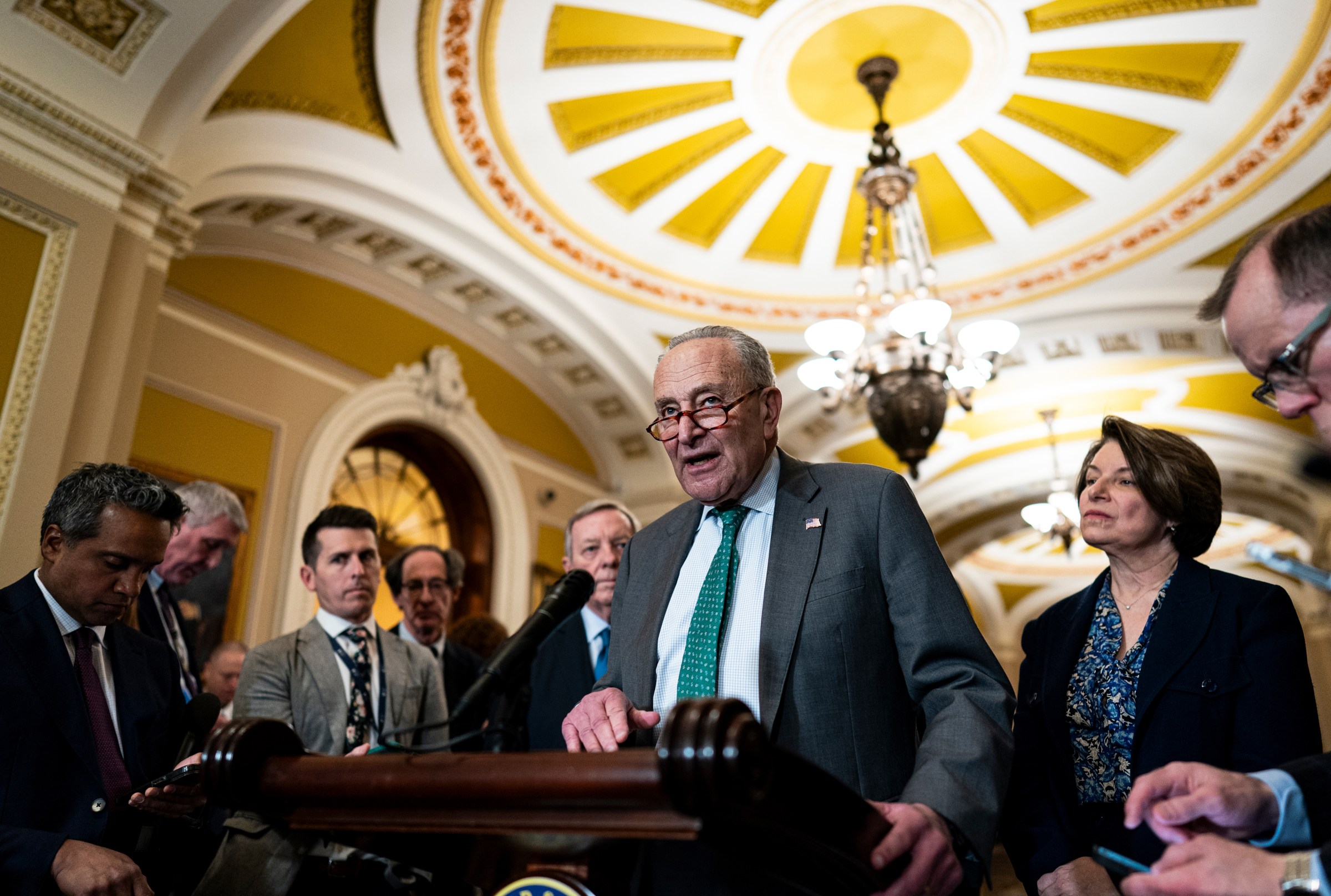

Senate Minority Leader Chuck Schumer, a Democrat from New York, speaks during a news conference following the weekly Senate Democrat policy luncheon at the US Capitol on March 11, 2025. Al Drago/Bloomberg via Getty ImagesOnce again, the country is on the brink of a government shutdown.
Unless the Republican-controlled Senate passes a spending bill, the government will shut down on Friday at midnight, when last year’s appropriations run out.
Read Article >Trump’s precarious economy, in four charts


Traders watch as then-President-elect Donald Trump walks onto the floor of the New York Stock Exchange on December 12, 2024, in New York City. Spencer Platt/Getty ImagesCandidate Donald Trump promised an economic renaissance. President Donald Trump is delivering economic turmoil.
The US stock market, once the only measure of economic performance that the president cared about, has seen a significant selloff amid fears of an impending recession — and the US is underperforming relative to its global peers.
Read Article >Trump is torching his greatest political asset
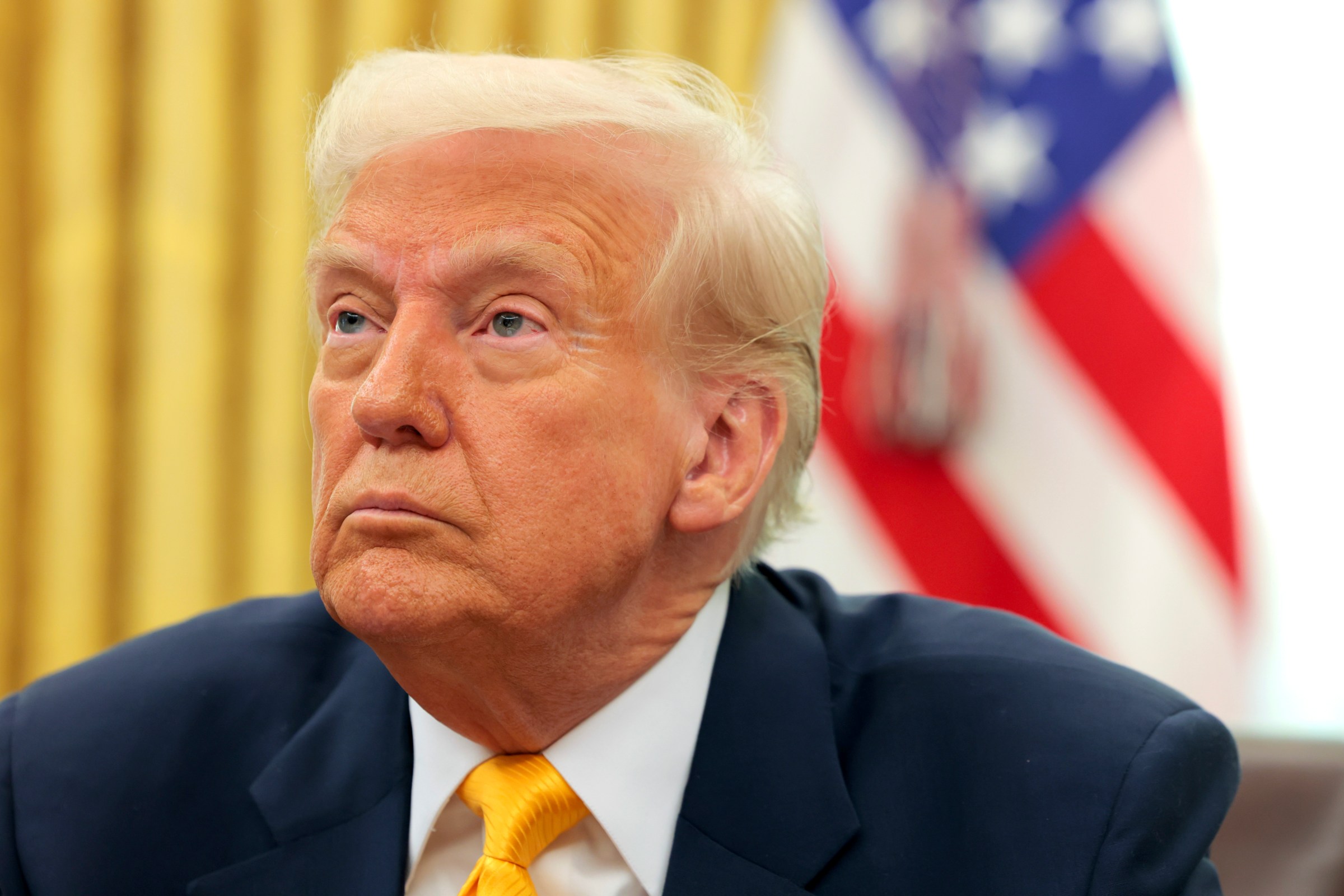

President Donald Trump delivers remarks on the jobs report from the Oval Office on March 7, 2025. Anna Moneymaker/Getty ImagesIt is a political truism that it’s bad to be the president in charge when the economy turns sour.
It may be especially bad for President Donald Trump — because, through endless controversies during his decade in politics, voters’ belief in his economic savvy has been his most consistent polling bright spot,
Read Article >What dismantling the Education Department means for kids with disabilities


A special education teacher works with a kindergarten student. Ben Hasty/MediaNews Group/Reading Eagle via Getty ImagesThis story originally appeared in Kids Today, Vox’s newsletter about kids, for everyone. Sign up here for future editions.
Over the last few weeks, I’ve been doing a lot of reporting on the Trump administration’s efforts to dismantle the Department of Education. The news on that front has been chaotic — a draft executive order to close the department was leaked, then walked back by the Trump administration, and newly minted Education Secretary Linda McMahon has pledged to guide the department through its “final mission” without providing specifics on what that mission is or how it is final.
Read Article >Is the US headed for a recession?


Traders monitor fluctuating stock prices. Spencer Platt/Getty ImagesDonald Trump has a gift for inheriting valuable things. And the economy of January 2025 was no exception.
When the president took office, stock values were hitting record highs, unemployment was hovering near historic lows, and consumer confidence was stable. Wall Street expected that business conditions would only improve. Among investors, conventional wisdom held that Trump was serious about corporate tax cuts — but not about launching an unprovoked trade war against America’s closest allies (a proposition too pointless and self-destructive to be sincere).
Read Article >The right’s new embrace of an old idea about race

 Getty Images
Getty ImagesEarlier this week, we learned that a senior State Department official called Secretary of State Marco Rubio stupid. The insult was delivered using peculiar phrasing — “low IQ” — that’s actually quite telling about the nature and ideas of the American right today.
The official in question, Darren Beattie, is the acting under secretary of state for public diplomacy — a fairly important job. He is also a creature of the internet fever swamps with a history of offensive behavior: He was fired from his speechwriting job in the first Trump administration for giving a talk at a white nationalist conference.
Read Article >Trump is running from his biggest health care success


The mRNA were hailed as a miracle. Why did Americans turn against them? Chandan Khanna/AFP via Getty ImagesExactly five years ago today, after more than 118,000 cases and more than 4,200 deaths across 114 countries had been recorded, the World Health Organization declared the novel coronavirus a pandemic.
With the virus spreading rapidly around the world, the need for a vaccine was desperate — but the prior record for the fastest development of a new vaccine to a new virus was four years. Yet vaccines using the new technology of mRNA were developed by Moderna and Pfizer/BioNTech in a matter of months, and were already being put into arms by the first anniversary of the pandemic.
Read Article >What’s mattered most amid Trump’s chaos so far
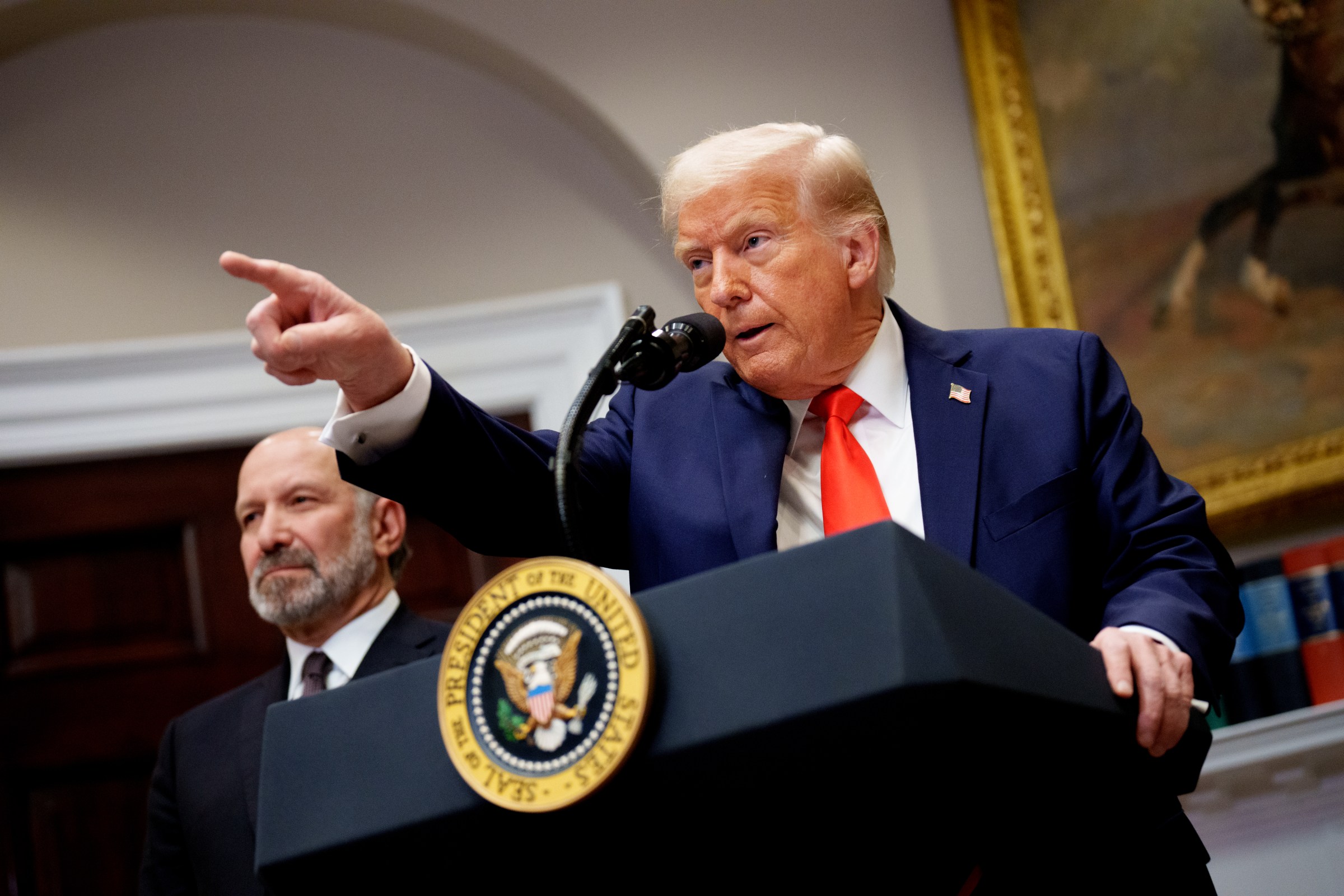

President Donald Trump, accompanied by Commerce Secretary Howard Lutnick, takes a question from a reporter in the Roosevelt Room of the White House on March 3, 2025 in Washington, DC. Andrew Harnik/Getty ImagesThe beginning of Donald Trump’s second presidential term has most certainly been full of sound and fury. What has it signified?
As in the first Trump administration, it’s been challenging to distinguish between the controversies of the day that will soon be forgotten, and the concrete changes that truly matter and will last.
Read Article >Trump is shredding the First Amendment under the guise of “national security”
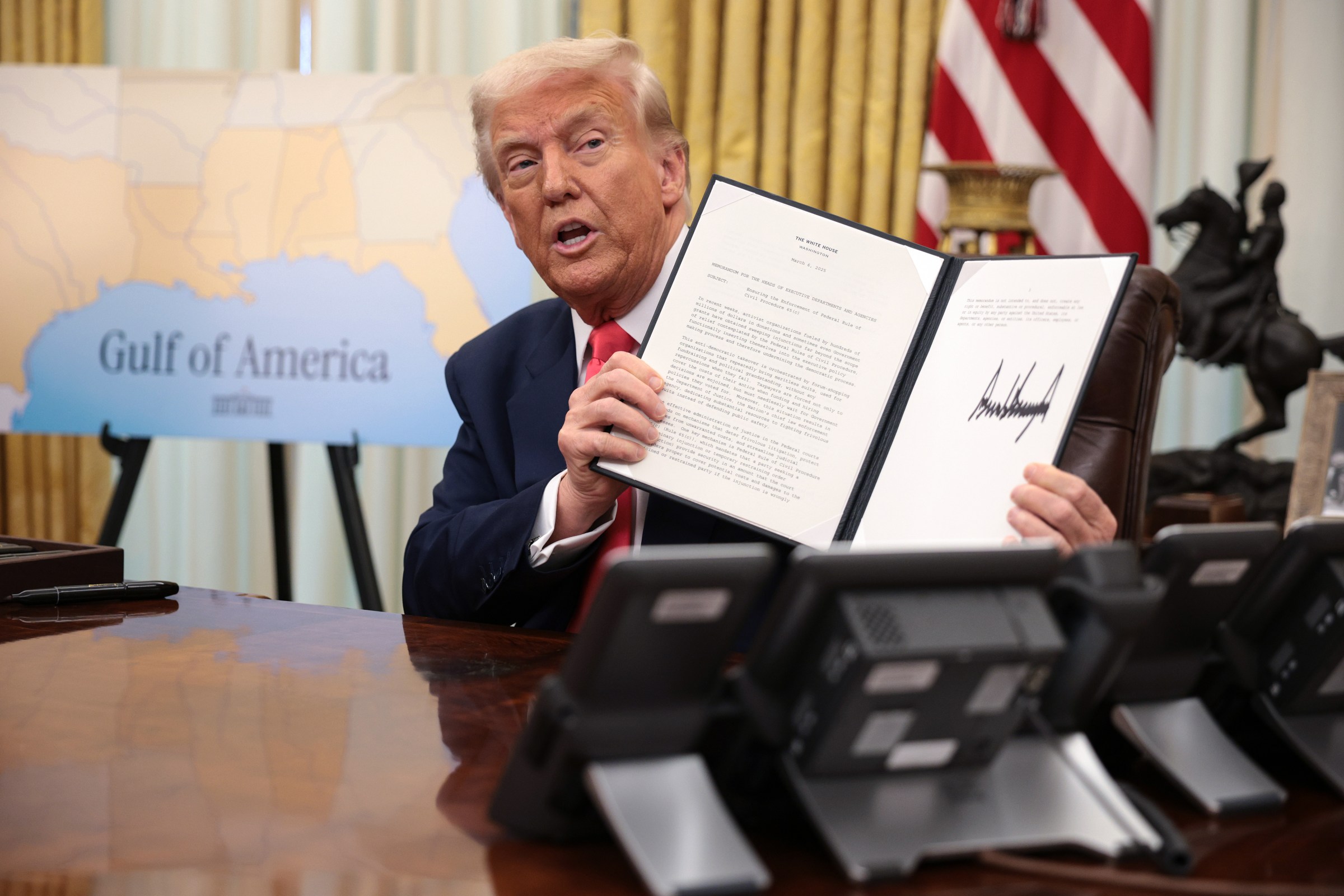

President Donald Trump signs executive orders in the Oval Office of the White House on March 6, 2025, in Washington, DC. Alex Wong/Getty ImagesPresident Donald Trump is going after a pair of major law firms — and attacking the First Amendment in the process.
Trump issued an executive order on Thursday that took aim at Perkins Coie, a law firm that represented Hillary Clinton when she ran against Trump in 2016. Notably, Perkins Coie hired a research firm that produced the infamous “Steele dossier,” which alleged the president colluded with Russia to steal the election. Trump’s order aims to strip the firm’s attorneys of their security clearances and asks the government to review all contracts with the firm with the intention of terminating any they can.
Read Article >Killing PEPFAR means killing millions of people
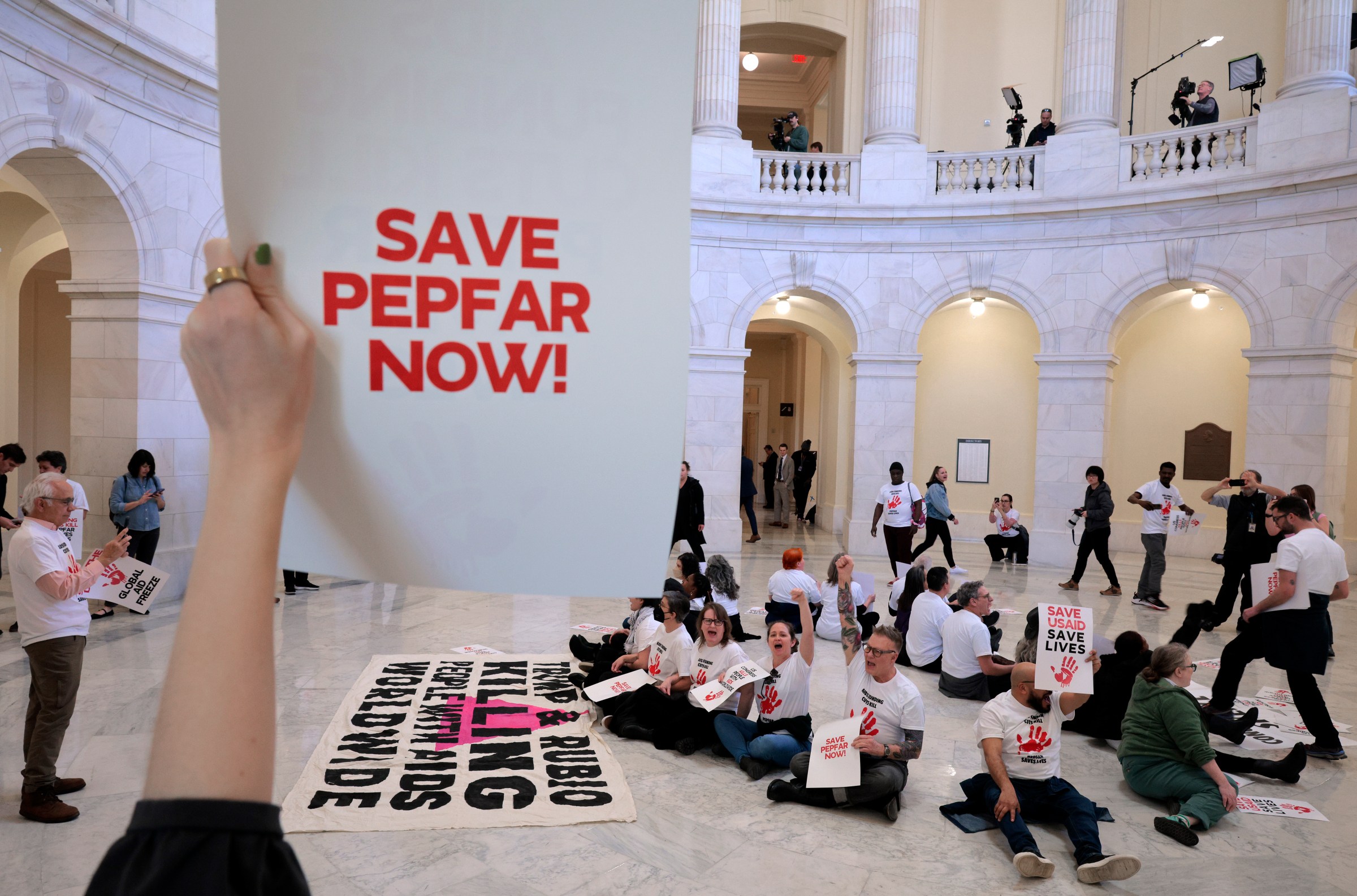

Demonstrators, some of them former PEPFAR and USAID employees, protest to demand that Congress stand up to President Donald Trump and Elon Musk’s “Department of Government Efficiency” and reinstate lifesaving programs in the Cannon House Office Building on Capitol Hill on February 26, 2025, in Washington, DC. Chip Somodevilla/Getty ImagesA lot has happened in the last six weeks, to put it mildly, and it can be hard to see through the dust and tell what’s actually ongoing.
The government threatened tariffs, backed off, then did the tariffs, and then started carving out tariff exceptions for connected-enough constituencies.
Read Article >This isn’t the economy Trump promised


For a “golden age” of America, that’s a lot of red. Michael M. Santiago/Getty ImagesWelcome to The Logoff. Today I’m focusing on Donald Trump’s effect on the economy, because we’re seeing some early indications of how the president’s policies are affecting the rest of us — and because the markets may influence his behavior going forward.
What’s the latest? We got two early signs of how Trump’s economy is doing today. The government reported that the US added a net 151,000 jobs in February — slightly less than the average growth for the past 12 months (168,000). And the financial markets closed their worst week since early September.
Read Article >Trump’s petty revenge on the Kennedy Center


The Kennedy Center is seen on a snowy night in Washington, DC, on February 11, 2025. Craig Hudson/Washington Post via Getty ImagesThe iconic musical Hamilton canceled its high-profile plans to perform next year at the John F. Kennedy Center for the Performing Arts, reports the New York Times. The news comes just weeks after President Donald Trump got himself declared chair of the Kennedy Center.
“This latest action by Trump means it’s not the Kennedy Center as we knew it,” Hamilton creator Lin-Manuel Miranda told the New York Times. “The Kennedy Center was not created in this spirit, and we’re not going to be a part of it while it is the Trump Kennedy Center. We’re just not going to be part of it.”
Read Article >
Most Popular
- A new Supreme Court case seeks to revive one of the most dangerous ideas from the Great Depression
- We got rid of acid rain. Now something scarier is falling from the sky.
- This is why Kamala Harris really lost
- Americans’ increasing antisocial habits, explained in one chart
- A new book suggests a path forward for Democrats. The left hates it.